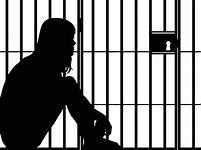“If you can only attend one class this week at Dallas County Jail, make sure it’s Mindfulness Meditation. It will change your life.” This is my message every Monday when the women in the Resolana program sign up for classes. My name is Lesley Mohney, and as the Program Coordinator of Resolana, I’ve been part of this transformative program for over 17 years.
Resolana is a trauma-informed, psycho-educational initiative designed for women in the Dallas County jail, part of the broader effort by Volunteers of America, Texas to provide gender-specific programming to female offenders. Our program addresses the deep-seated trauma many incarcerated women face, which often goes unaddressed in real-time.
The Impact of Childhood Trauma on Incarcerated Women
According to Urban Institute research shows around 61% of the general population has had at least one adverse childhood experience, a potentially traumatic event that occurs to people younger than 17, and that number is closer to 97% for people in prison. Also, we know that for incarcerated individuals this trauma occurs on multiple levels – for example incarcerated women experienced childhood physical and sexual abuse, sexual abuse and they live in poverty, or are raised by parents with addictions so they are neglected and physically abused.
Another key component for incarcerated women is the multiple layers of trauma are not addressed in real time. No one around them has the mental, physical or financial resources needed to get into a healing modality like therapy or treatment. As young adults their lives turn to foundational survival – finding work, food, housing. They begin to raise children and this untreated childhood trauma begins to take root within their mind creating self-sabotaging and self-abusive patterns that often leads to making choices that end with incarceration. The final dynamic specific to incarcerated women is a routine lack of understanding that their journey has included “trauma” because the things that happened to them have been happening to women generationally in their families.
Science has begun to show the effects childhood trauma has on the functioning of our brains. The brain of a victim of unresolved childhood abuse functions through a prism of that abuse on an unconscious level. This prism acts as a filter taking all the information around them and putting it in a context of the unresolved trauma instead of being seen “as it is”. This causes the incarcerated woman to make choices from a standpoint rooted in the unresolved trauma rather than actual facts. Their unresolved trauma affects every action, every choice they make until understanding of the abuse is seen and healing action can begin.
The vast majority of incarcerated women never begin their healing journey, regardless of their age, until they come into some type of program like Resolana in the Dallas County jail.
How Mindfulness Meditation Helps
“Mindful Meditation taught me how to stop my mind. It takes me to a different place. My body even feels different. I know I am doing prison different this time because of Mindful Meditation.” That was written by a women sentenced to a 3 year sentence in state prison. She began doing Mindful Meditation in Resolana and continues to do it in Prison. She went on to say in that letter written to me that she is teaching other women in prison how to meditate and this has given her purpose. Without a doubt doing Mindful Meditation in jail changed the trajectory of her life.
Numerous research studies have elucidated how mindfulness training improves thinking and attention at the level of brain physiology. This means by focusing on the present moment, cultivating mindful awareness toward sensations, and attending to the rising and falling of the breath, a person can actually improve their brain’s ability to direct your attention and accurately perceive the world. Mindful Meditation can change the prism / filter of the incarcerated women’s brain.
The lights are never turned off at Dallas County Jail. Officers are charged to keep everyone safe which demands a controlled environment limiting spontaneous movement and self directed activities. This type of hyper controlled environment would be triggering to any individual. For a women experiencing unresolved trauma this environment can become a recycling of the original abuse triggering a response that ultimately triggers the same self abusive reactions that created the incarceration experience to begin with.
Testimonials and Success Stories
Having worked with on average of over 500 women a year in Resolana I have seen those who chose to participate in DCMC’s Mindful Meditation group each week have a different experience in the jail environment. They routinely report to me their excitement of not “letting” the Officer’s attitude or behavior upset them. They talk about handing upsetting or irritating behaviors of other women living near them differently after several sessions of Mindful Meditation. They use words like “calm”, “peace”, “hopeful”, “self love”. These words are not usually associated with the experience of incarceration. I have no doubt Mindful Meditation changes the experience of being incarcerated. I believe it is important to discover new ways to get the experience of Mindful Meditation to all individuals currently living in jails or prisons across the country.
“If you can only take one class this week, make sure it is Mindful Meditation. It will change your life.” ….indeed.
* Resolana is a program of Volunteers of America, Texas (VOATX) which provides gender-specific programming to female offenders, beginning inside the Dallas County Jail and continuing through their re-entry into the community.
Learn more at Resolana – VOA Texas (voatx.org)
